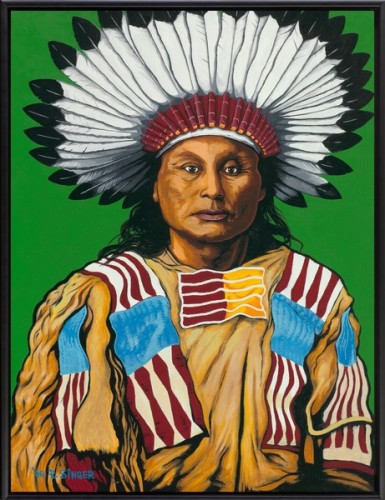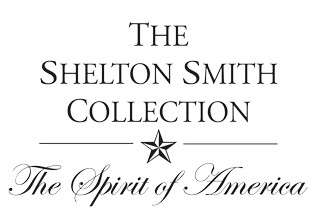

THE BATTLE OF THE LITTLE BIG HORN
130TH ANNIVERSARY (1876-2006) COLLECTION
Portraits of The Native American War Chiefs By Ryan Singer
On May 17, 1876, Lt. Col. George Armstrong Custer led the United States Seventh Cavalry out of Fort Abraham Lincoln (near present-day Bismarck, ND). His orders were to deploy west to the Montana Territory, pick-up an Indian trail at Rosebud Creek, then swing North along the Little Big Horn River where he was to meet-up with the converging forces of Generals George Crook, John Gibbon and Alfred Terry. The four combined commands would then engage and destroy the hostile Sioux, whose strength was estimated at no more than 800 warriors. In fact, there were at least 7,000 (maybe as many as 10,000) Indians in the vicinity, in a loose coalition of tribes on the lower reaches of the Little Big Horn River. It was the largest confederation of Indians ever known to have gathered in one place.
At about 4:00 p.m. on June 25, 1876, Custer’s regiment, operating alone, collided head-on with this huge Native American force led by the Hunkpapa Lakota War Chiefs Sitting Bull and Gall, and Oglala Lakota War Chief Crazy Horse. The ensuing battle lasted about one hour, resulting in the annihilation of the entire U.S. Seventh Calvary. The sole survivor of Custer’s command was Myles Keough’s claybank gelding, Comanche, found wondering the battlefield with numerous arrow wounds.
During 2005-2006, award-winning native American (Navajo) artist Ryan Singer of Tempe, Arizona, created this special commemorative portrait collection in honor of the three Sioux war chiefs who commanded the Native American forces at the Little Big Horn.
(L-R) Gall, Sitting Bull, Crazy Horse / acrylic, 40x30 each, framed
